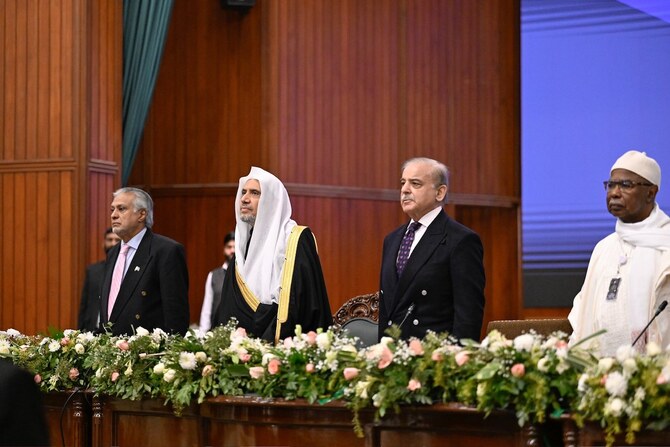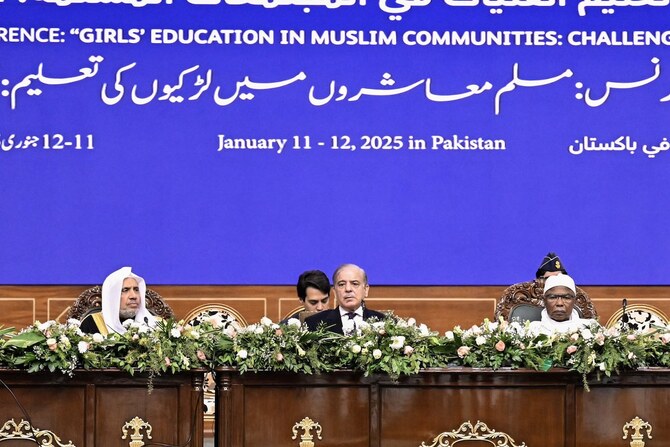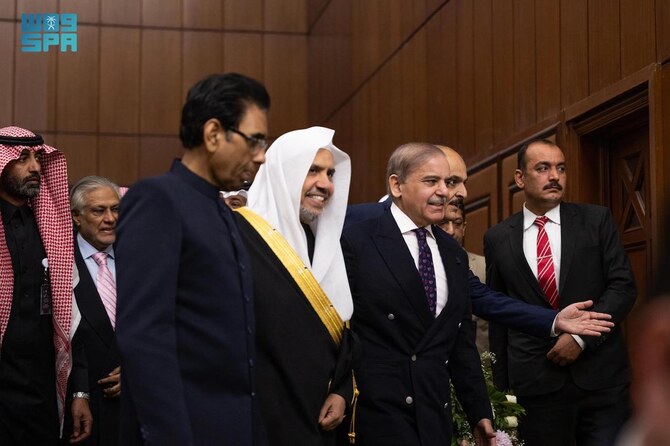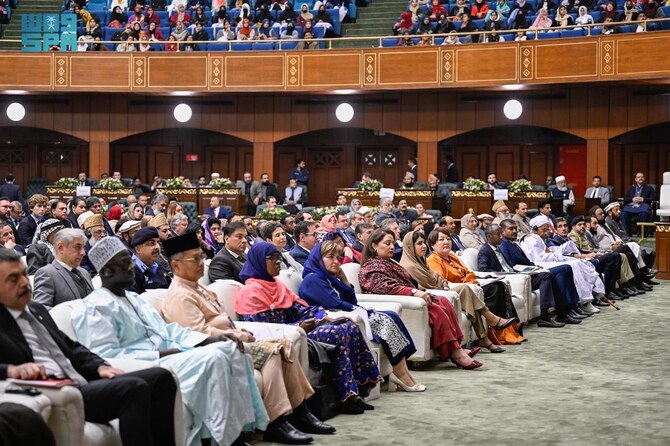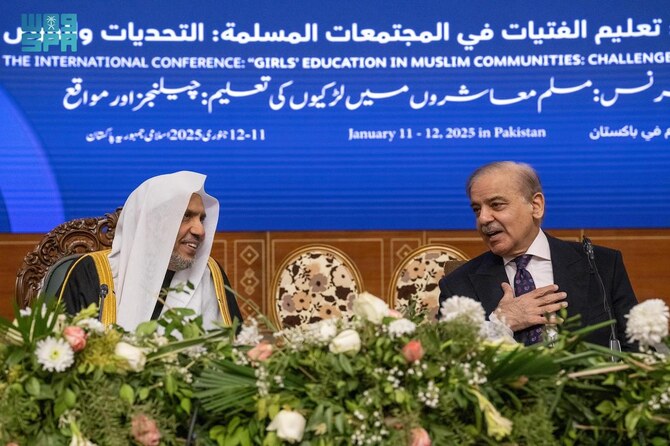ISLAMABAD: Islam places no restrictions on girls’ education, Dr. Mohammed Al-Issa, secretary-general of the Muslim World League, told an international conference in Pakistan on Saturday focusing on the issue.
The MWL leader added that anyone opposing education for women deviates from the global Muslim community.
Pakistan and the MWL co-hosted the two-day conference, “Girls’ Education in Muslim Communities: Challenges and Opportunities,” under the patronage of Prime Minister Shehbaz Sharif in Islamabad.
Sharif commended the MWL for its dedication to education, saying that ensuring equal access to education for girls remains one of the most pressing challenges of the present time.
“Entrenched societal norms intensify the problem of a lack of education for girls, leading to a cycle of deprivation that affects more than one generation,” he said.
The initiative aims to raise awareness in Muslim communities about the importance of girls’ education through various themes, joint programs, and collaborative agreements.
“Our Islamic faith has always celebrated the education of every Muslim, both male and female, because the message of Islam was to enlighten all, regardless of gender,” Al-Issa told participants.
“Therefore, Muslim women in Islam have had a significant and active presence in all spheres of life — in religious matters, the sciences, politics, economics, and societal affairs throughout history.”
The MWL chief said any reservations about girls’ education must be understood as stemming from non-Islamic customs that have no basis in the Muslim faith.
He lauded the initiative as a transformative step for advancing girls’ education, emphasizing its practical and results-oriented approach.
The forum addressed the issue by signing a consensus document, “the Islamabad Declaration for Girls’ Education,” reaffirming that Islam does not prohibit women’s education in any way.
It will be presented to international governmental and nongovernment organizations. The declaration calls for the establishment of an international day dedicated to advancing its primary goal.
Al-Issa said that the declaration will serve to solidify and strengthen the initiative.
The initiative also includes the launch of a platform for international partnerships, along with the signing of several agreements with regional and international organizations focused on women’s empowerment and girls’ education.
The summit brought together over 150 dignitaries from 44 Muslim and other friendly states, according to Pakistan’s Foreign Office. It was also attended by Hissein Brahim Taha, secretary-general of the Organization of Islamic Cooperation.
Taha affirmed the organization’s readiness to support the initiative and contribute to its success for the benefit of girls across the Islamic world.
“Education forms the cornerstone of a strong society and represents a shared responsibility that facilitates progress and prosperity. At the OIC, we categorically oppose any policies or practices that violate Islam’s respectful and honorable teachings regarding women,” he said.


